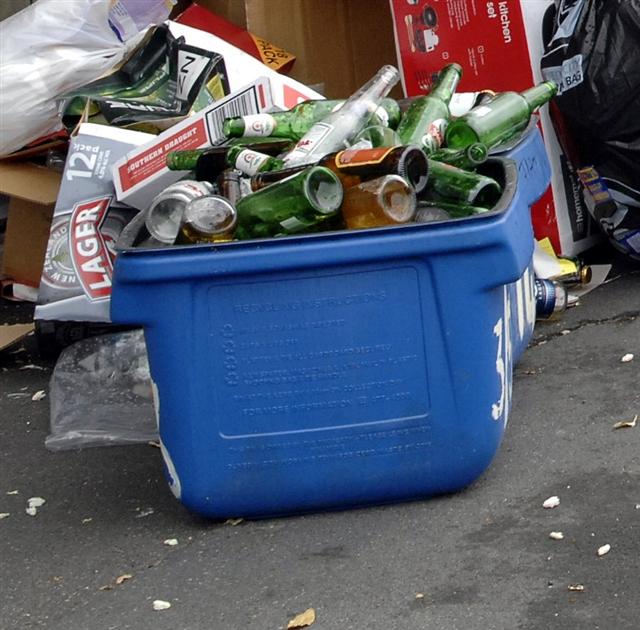Farmers and ranchers in Western Washington once again have a place to get rid of the plastic
that tends to pile up around ag operations.
René Skaggs, farm resource specialist at the Pierce Conservation District, thought she had solved the problem last year, but planned pickups at feed stores in the surrounding counties just weren’t happening.
“We were one step away from pulling the plug on the program,” she said.
Without a source for recycling, many producers were dumping their hay twine and feed sacks into the trash. “Some had even been burning their haylage wrappers,” she said.
In coordination with the Thurston Conservation District, Skaggs contacted Wilson Recycling, which had a reputation for consistent pickups and weekly calls for the materials it already handled.
“We’ve been taking regular household recyclables and metals, so it was a natural to take agricultural plastics,” David Baker, executive director of Wilson Recycling, said. “Now we’ve got the widest range of plastics for a long way around, from toys to crop covers. We’re helping farmers do the right thing.”
Skaggs said having a recycler available saves farmers money on dumping costs “and it’s a great re-use of the material. It’s just ridiculous that some of this is not designed to be recyclable.”
Plastics that once were dumped or burned can be used in the manufacture of such things as siding, benches, truck cargo liners, beverage bottles and plastic bags.
Materials come from farms, ranches, horse boarding facilities and lumber yards in Mason, Thurston, Pierce, Lewis and Grays Harbor counties. Most drop-off and collection points are at conservation districts and feed stores. “I’m looking for more partners, too, and expand the range of collections.”
He listed some of the ag materials his company handles: shrink wrap, lumber wrap, compost and bale films, sheet plastic, banding, nursery pots, baling twine, netting, irrigation line and feed, pellet and fertilizer bags.
“I have a small hobby farm,” Baker said. “A farm means you’re raising something living, and what dies becomes fertilizer. It makes no sense to be buying trash for my farm. I hate waste.”
The recycling center takes up about three acres of the eight-acre property just north of Shelton. Materials of all kinds are sorted into specific areas: metal, glass, electronics, plastic foam and grocery bags.
The 10 full-time workers at Wilson Recycling get the materials into marketable form. This means disassembling, cutting, baling, compressing and consolidating for shipment to end users.
Many reparable items, such as refrigerators and bicycles, are often discarded, he said. “I’m looking at getting a re-used specialist and work with them on developing that program, putting new life into what’s ‘dead.'”
Baker held up a trophy from the Washington State Recycling Association, honoring his company as 2011 Recycler of the Year. “This recognizes what we’re doing above and beyond,” he said.
Skaggs said having a reliable recycler making the rounds in the region is a relief. “And we’ve heard nothing but praise from farmers and feed stores.”
Source : www.capitalpress.com





